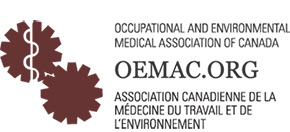The Seven Ethical Principles of Occupational and Environmental Medicine
Occupational and environmental health professionals have an obligation to…
1. Promote a Safe and Healthy Workplace Environment
Acknowledge primary responsibility for the health and safety of the individual, as well as worker populations, and take affirmative measures to ensure health and safety in the workplace.
2. Uphold Ethical Standards
Behave honestly and ethically in all professional relationships, actively resisting and striving to correct unethical conduct. Recognize and acknowledge impairments that interfere with the ability to follow this Code and take appropriate measures to ameliorate them and restricting practice until remediation is accomplished.
3. Avoid Discrimination
Build a relationship of trust and confidence with the people for whom they provide services, treating all in an equitable manner, without any form of discrimination. Identify and overcome bias or stereotypes which may affect medical care and decision making both in individual patients and in the populations served.
4. Maintain Professional Competence
Maintain individual competence and expertise based on current scientific evidence and technical knowledge, remaining engaged in life-long learning regarding work and the environments of those whom they serve and applying appropriate methods to eliminate or minimize risks and recognizing when to call upon specialized expert advice.
5. Protect Patient Confidentiality
Keep confidential all individual medical, health promotion, and health screening information, only releasing such information with proper authorization. Recognize that employers may be entitled to counsel about an individual’s medical work fitness.
6. Advise and Report
Communicate effectively and in a timely manner to an individual all significant observations about the health and health risk of that person and provide advice about interventions available to restore, sustain, and improve health or prevent illness. While respecting confidentiality, report findings and observations of health effects in individuals and populations to those in a position to take appropriate action.
7. Address Conflict of Interest
Ensure ethical conduct regarding conflicts of interest by recognizing, acknowledging, and appropriately addressing any secondary interests that might in reality distort the integrity of judgments or be perceived to do so. Ethical practice must ensure that harm does not accrue as a result of such conflicts.
Approved by the OEMAC Board of Directors, July 2015
Courtesy of American College of Occupational and Environmental Medicine (ACOEM)

